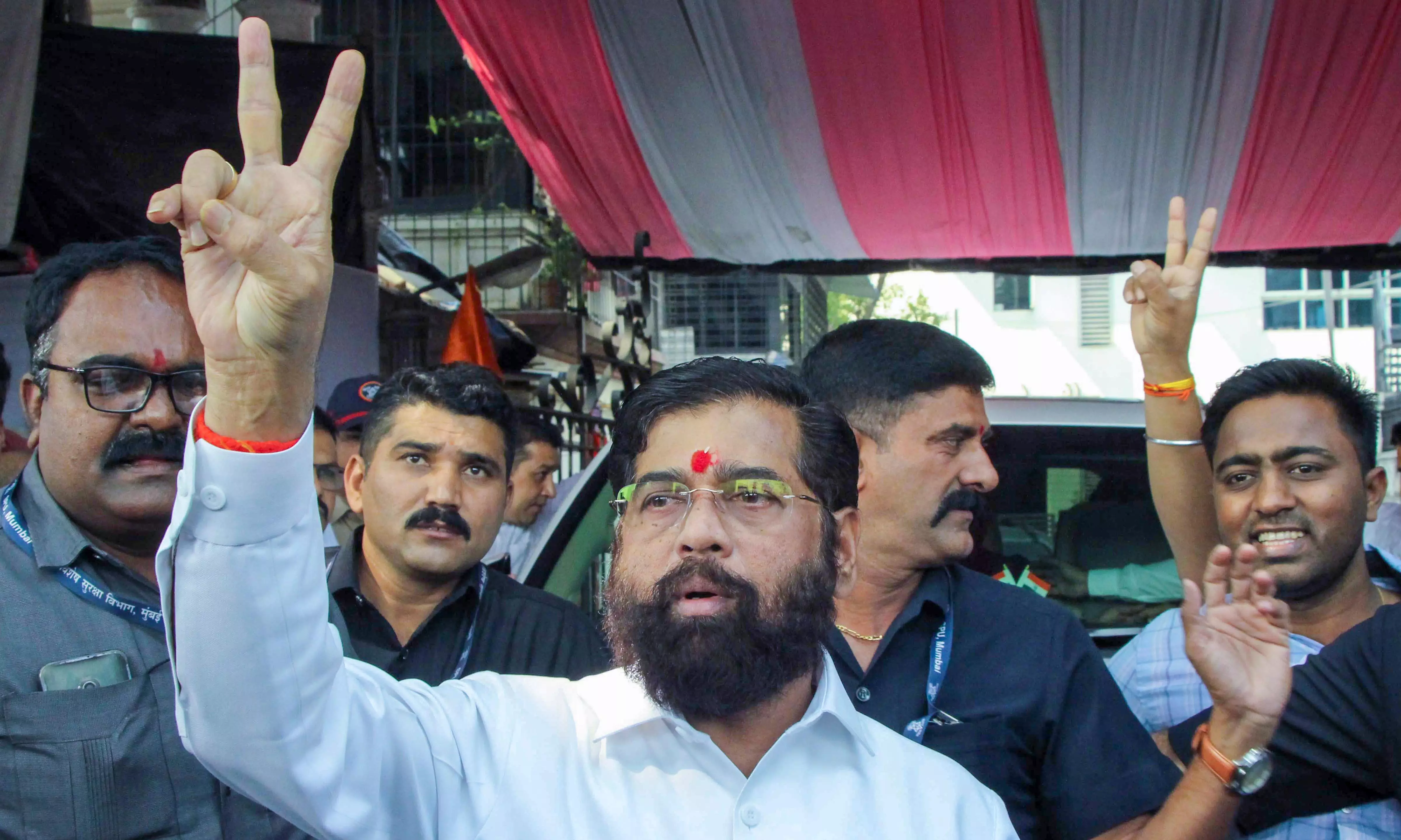
BJP's dominance in Maharashtra: Decoding the party's historic victory
BJP's landslide in Maharashtra reshapes the political landscape, sidelining regional giants, leveraging welfare schemes, and solidifying its cultural nationalist agenda

In a landmark development for Maharashtra politics, the BJP-led NDA coalition has clinched a decisive victory in the state elections, winning over 220 of the 288 assembly seats. This overwhelming mandate not only consolidates BJP’s dominance in the state but also marks a significant shift in the political landscape. Political analyst Dr. Amit Dholakia, in a discussion with The Federal's Gyan Verma, provided insights into the factors driving this result and its implications for the future.
The end of regional party supremacy
Dr. Dholakia noted that the BJP’s landslide victory signals the marginalisation of regional parties like the Shiv Sena and the Nationalist Congress Party (NCP), long dominant forces in Maharashtra. He attributed the BJP's rise to a decade-long strategy of fostering alliances and systematically consolidating power. "For the first time, the BJP is in a position to govern Maharashtra without relying on regional partners," he observed, adding that this victory reflects a shift from regionalism to a two-party or tri-party framework, with the BJP as a central force.
Also Read: Maharashtra Assembly polls: Mahayuti set for landslide win; MVA cries foul
Maratha agitation and welfare politics
Despite the Maratha reservation movement and widespread farm distress, the BJP managed to appeal to a broad voter base, partly through welfare initiatives like the Laxmi Ladli Yojana. This scheme, aimed at empowering women, resonated deeply, with Dr. Dholakia emphasising its role as a "game changer." The BJP’s ability to balance OBC mobilisation with subtle outreach to the Maratha community further consolidated its position.
The India Alliance, including Sharad Pawar's NCP and Uddhav Thackeray’s Shiv Sena faction, failed to capitalise on these regional issues. Dr. Dholakia noted that their inability to present a cohesive narrative and leadership disarray weakened their appeal. "The Maratha agitation did not translate into votes for the India Alliance, as the BJP effectively blunted caste-based mobilisations with a narrative focused on welfare and Hindu identity," he said.
Future of leadership and regional dynamics
The victory has positioned the BJP to claim the Chief Minister's post, likely pushing aside allies like Eknath Shinde. Dr. Dholakia suggested that this election marks the "beginning of the end" for the Shiv Sena factions, predicting their diminished influence in Maharashtra’s political arena. Similarly, Sharad Pawar’s stature has suffered a severe blow, with Dr. Dholakia calling this election a "sunset moment" for his political legacy.
Also Read: How 'Ladli Behna' scheme helped BJP-led Mahayuti retain power in Maharashtra
Role of the RSS and nationalist themes
The Rashtriya Swayamsevak Sangh (RSS) played a pivotal role in galvanizing support for the BJP. Dr. Dholakia highlighted the organization’s strategic campaign focusing on Hindu identity over caste divisions, effectively countering opposition narratives. "The RSS and its affiliates were instrumental in advancing the BJP's cultural nationalist agenda," he said.
What lies ahead
This victory strengthens the BJP's position ahead of the 2024 Lok Sabha elections, reaffirming its hold on Maharashtra, India's second-largest parliamentary state. With its growing appeal across caste and regional lines, the BJP appears poised to expand its reach further.
As Maharashtra embraces this new political reality, the ramifications for both the state and national politics will be significant.
(The content above has been generated using a fine-tuned AI model. To ensure accuracy, quality, and editorial integrity, we employ a Human-In-The-Loop (HITL) process. While AI assists in creating the initial draft, our experienced editorial team carefully reviews, edits, and refines the content before publication. At The Federal, we combine the efficiency of AI with the expertise of human editors to deliver reliable and insightful journalism.)

